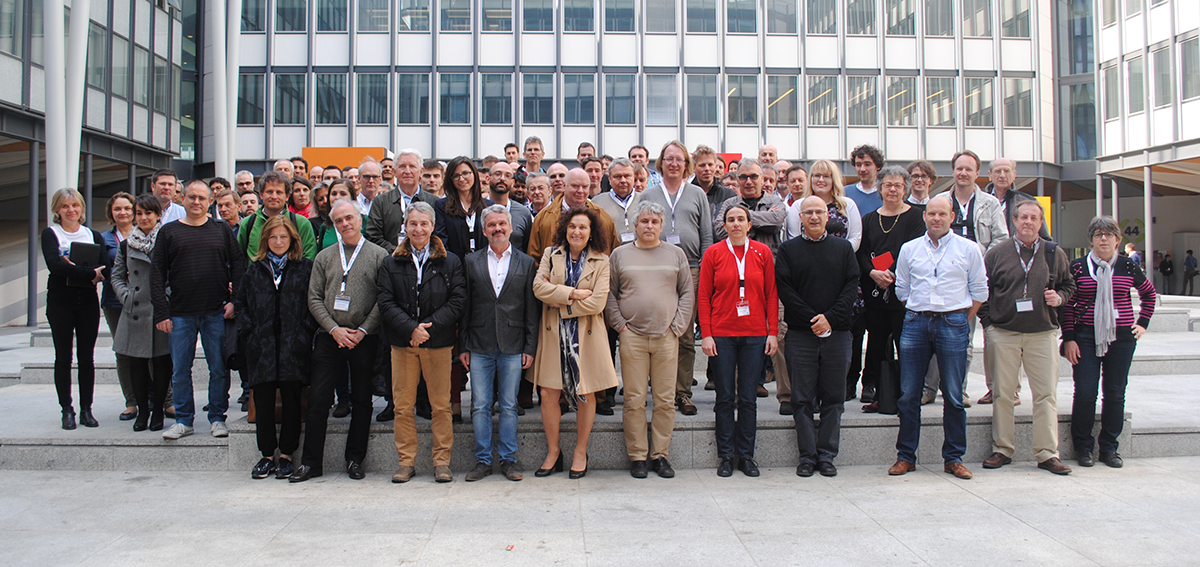
AIDA-2020 second Annual Meeting
Jennifer Toes, 29/05/2017

Attendees to the AIDA-2020 second Annual Meeting in Paris, 4-7th April 2017 (Image: CNRS-LPNHE)
Over 4-7th April 2017, the AIDA-2020 project gathered its members at the LPHNE Jussieu campus in Paris, France to host its second Annual Meeting.
The meeting marked the mid-way point of the project, and encouraged all project members to attend to present on their work over the past 12 months. Over 130 participants attended the meeting; the turn-out remarkably consistent since the kick-off and first annual meeting. All Work Packages held parallel sessions and were represented during the scheduled plenary talks.
The Annual Meeting was preceded by a one-day Academia Meets Industry event on 3rd-4th April, organised by the CERN Knowledge Transfer Office. The event hosted academic researchers and members of industry from across Europe to discuss multidisciplinary approaches to medical imaging and image processing.
Felix Sefkow, AIDA-2010 Scientific Coordinator, commented, “The presentations covered exciting research not on the every-day agenda of the typical high energy physicist and highlighted the strong impact that particle detector development has on medical imaging. This was inspiring and encouraging.”
Presented at the first Annual Meeting in 2016, the AIDA-2020 Proof-of-Concept (PoC) fund detailed the three projects selected following its call for proposals in 2016. The selected applicants included the following projects: a radon dosimeter, silicon vias for pixel detectors and microdosimetry for advanced radiation therapies.
The project’s Scientific Advisory Board (SAB) presented on the final day of the meeting and commented on the high quality of the reports provided.
Sefkow summarised, “This was a very successful and pleasant meeting. The lively discussions at and around the sessions evidenced how attractive – and in many areas unique - the concept is, which brings different communities together for joint activities. The project is in full swing, and already at this stage the reported progress truly impressed me.”
